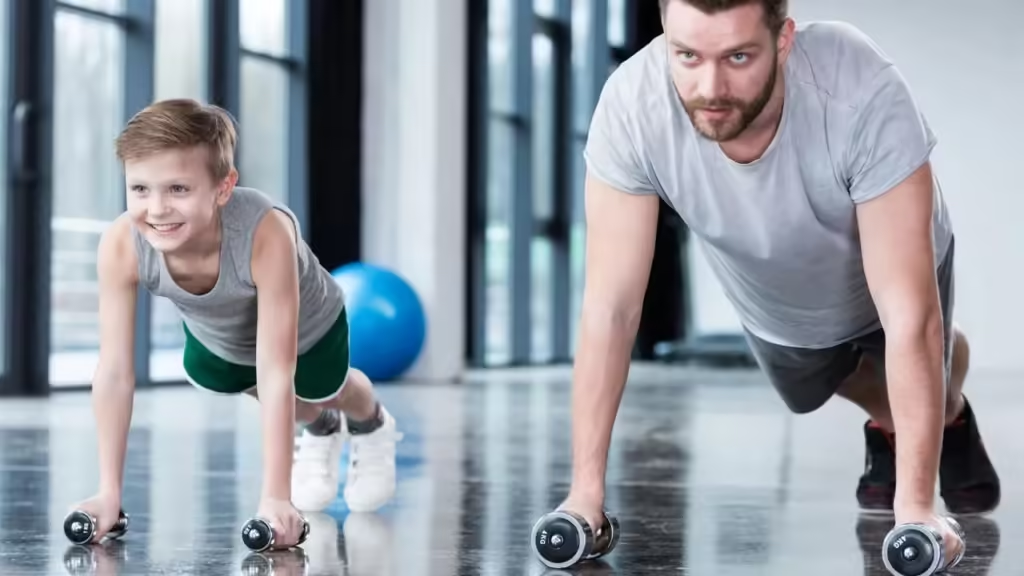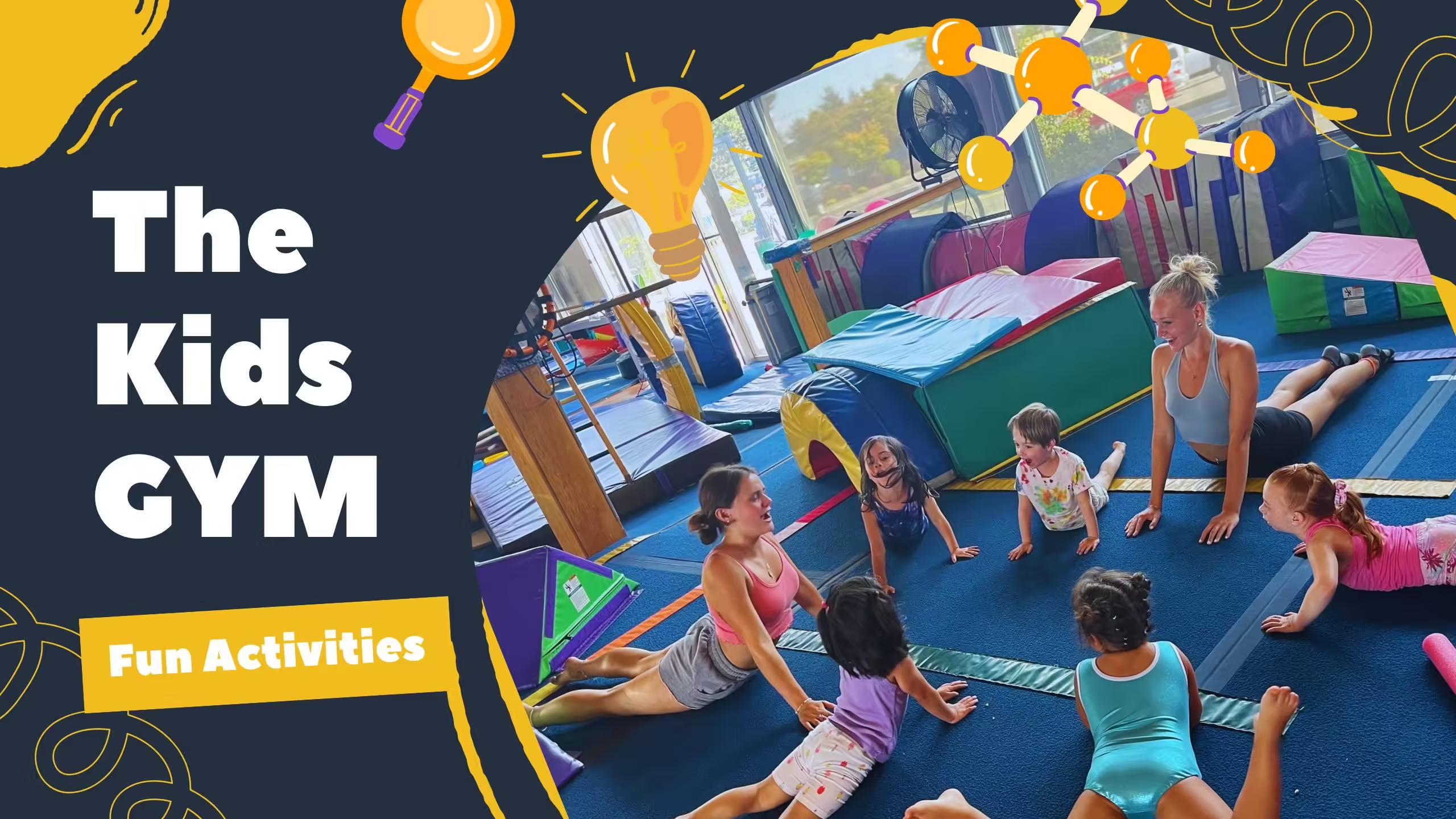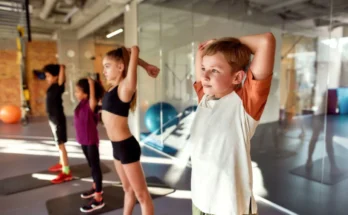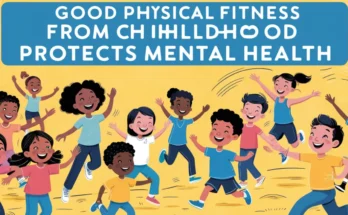Hello, Beautiful People! In today’s health disciplined world, making sure that our children stay active is more important than ever. As parents, you might think if your child is ready for a kids gym.
Physical fitness offers a lot of advantages, from building strength and resilience to boosting up confidence and releasing stress. It’s important to check if your child is wiling for scheduled exercises.
This blog post will explore what gym readiness means for children. We’ll see the pros of gym workouts, and how to check out if your child is ready for joining gym. By understanding these elements, you can help promote a lifelong fitness fanatic in your child.
Let’s get going!
Understanding Gym Readiness

Gym readiness refers to a child’s physical, emotional, and mental preparation to participate in fitness gym sessions. This involves not only their physical abilities but also their interest, motivation, and adulthood. Making sure a child is ready to go to gym helps stave off injuries, promotes a positive experience, and sets the base for a healthy fitness lifestyle.
Factors to Consider
Age for Kids Gym
While there is no strict age limit, little children mostly benefit more from basic exercises. Structured gym workouts are usually more worthy for older children who can follow instructions and handle more harsh activities.
Physical Ability
Assessing your child’s physical fitness level is very important. This includes their strength, teamwork, and stamina. A child who can comfortably participate in physical education classes and entertaining sports is likely ready for more fitness exercise routine.
Maturity
A child’s ability to focus, follow instructions, and understand the importance of safety measures is pivotal. Maturity makes sure they can handle the discipline required in a gym environment and act well to coaching and response.
Interest and Motivation in Kids Gym
A child’s zest for gym activities plays a major role in their readiness. If they show a deep interest in exercising, trying new sports, or imitate fitness routines they see, it’s a positive sign they are ready to experience the gym.
Health Considerations
Consulting with a child’s doctor is important to figure out any medical conditions that might affect your child’s ability to safely take part in gym activities. This makes sure that any exercise program is designed to their specific health needs.
Benefits of Gym Workouts for Children
Physical Health Benefits of Kids Gym
Regular gym workouts help children strengthen muscle and improve flexibility. This takes part in overall physical development. Strength training can hold up bone health and minimize the risk of wounds in other physical activities. Participating in aerobic exercises at the gym boosts cardiovascular health, such as:
- Running
- Cycling
- Swimming.
Regular physical activity helps be in good shape by burning fats and building muscle. This is especially important in putting a stop to childhood obesity and its related health issues.
Mental Health Benefits of Kids Gym
Achieving fitness goals and learning new exercises can increase a child’s inner confidence. Positive encouragement from trainers and friends in a gym increases their worth. Gym workouts want children to follow instructions, stick to routines, and establish targets. These activities rise discipline, increase focus, and teach the value of diligence and determination. Physical activity is a natural strain relief. Exercise releases endorphins, the body’s natural mood lifters, which help reduce depression. This leads to a happier and more balanced state of mind.
Social Benefits of Kids Gym
Many gym activities involve team exercises, teaching children how to work jointly, communicate in an effective manner, and support each other. Gyms provide a social environment where children can engage with friends having same interests. This can lead to forever friendship bond and a sense of unity. Uncovering to various types of exercises and sports in the gym helps children find new interests and develop physical skills. This enhances overall fitness and teamwork.
The following video is about how exercise makes you better:
Age-Appropriate Activities
1. Ages 5-7: Exploring Basic Fun Activities
Get your children up to date with basic gym tools such as:- Stability balls
- Jump ropes
- Light weights.
- Squats
- Lunges
- Push-ups
- Planks.
2. Ages 8-12: Transitioning to Light Weight Training
Introduce structured workout routines that include a mix of:- Running
- Cycling
- Resistance bands
- Light dumbbells.
- Soccer
- Basketball
- Gymnastics.
3. Ages 13 and Above: Advanced Workouts
Introduce more strength exercises using heavy weights. Focus on proper technique and slowly increase intensity. Engage in longer cardiovascular workouts such as:- Running
- Swimming
- Cycling.
- Agility drills
- Plyometric exercises.
Girls and Guys High School Camps to finish out our week! Amazing 4 days in the gym! We had over 140 kids and we are so thankful that’s we could share our favorite game with them. Shout out to all our high school helpers, alumni, and all the coaches! pic.twitter.com/fsN2VYSpCD
— LHS Cougars Girls Volleyball (@LHSCougarGVB) July 26, 2024
Creating a Positive Gym Experience
Introducing Your Child to the Gym Environment
Start with an orientation session to make familiar your child with the gym design, equipment, and safety rules. Take a tour of the gym, including:
- Workout areas
- Changing rooms
- Water fountains.
Introduce your child to gym representative members. Making a friendly bond can make the gym feel more welcoming.
Choosing a Child-Friendly Gym
Look for gyms that offer age-appropriate classes for kids. These may include:
- Kids’ yoga
- Martial arts
- Group fitness sessions.
Make sure that the gym follows uncompromising safety measures, including:
- Proper equipment maintenance
- Certified trainers
- Emergency protocols.
Importance of Supervision at Kids Gym
Sign up your child in sessions led by qualified trainers that have experience in working with children. Trainers should provide:
- Clear instructions
- Offer modifications
- Prioritize safety.
Feedback and Encouragement
Make sure trainers provide positive feedback and encouragement to motivate children and celebrate their victories. Positive boost up enhances the overall experience.
Encouraging a Lifelong Fitness Habit at Kids Gym
1. Making Fitness Fun and Engaging
You should introduce many physical activities and games to keep children occupied and interested. Keep changing activities regularly to stay away from boredom. Also, include fitness into family activities such as:
- Hiking
- Biking
- Playing outdoor games.
Include play-based activities that imitate activities children enjoy, such as:
- Animal walks
- Scavenger hunts
- Dance parties.
2. Setting Realistic Goals at Kids Gym
Cheer up children to set realistic fitness goals, such as:
- Improving endurance
- Mastering a new skill
- Participating in a sports event.
You can use charts or apps to see progress and celebrate occasions. When children visualize their achievements, it motivates them to continue their fitness journey. Focus the importance of working over perfection. Celebrate the effort and hard work children put into their workouts, regardless of results.
3. Encouraging Variety in Physical Activities
Motivate cross-training by taking part in activities such as:
- Swimming
- Cycling
- Yoga
- Team sports.
Stimulate children to try new activities or sports outside their solace area. Exploring different activities helps discover affections and keeps fitness exciting. Be a positive role model by focusing on your own fitness. Children often follow their parents’ behaviors.
Conclusion
In conclusion, encouraging a lifelong fitness habit in children is obligatory for their physical and mental well-being. By making fitness fun and charming, setting realistic goals, and encouraging variety in activities, we can implant a love for exercise that lasts forever.
Celebrating the efforts they make and achievements, no matter how small, motivates them. As parents and supervisors, our active participation and positive attitude towards fitness play an important role in tuning their habits. Together, we can allow children to live a healthy life, where they can enjoy the countless benefits of staying physically active forever.
Now, let me know what’s stopping you from enrolling your child in the kid’s gym?
FAQ
- At what age can my child start going to the gym?
There isn’t a particular age requirement, but most children are ready for gym activities around 7-8 years old. However, readiness depends on:
- Maturity
- Interest
- Physical ability.
- What are signs that show my child is ready to go the gym?
Signs include:
- Interest in physical activities
- Ability to follow instructions
- Sustained energy level
- Positive attitude towards exercise.
- Are gym exercises safe for children?
Yes, with proper supervision and age-appropriate activities, gym workouts can be safe and advantageous for children. Trained professionals should supervise their workouts and make sure they use equipment accurately.
- What type of exercises fit for different age groups?
- For younger children (5-7), focus on basic exercises, fun activities, and flexibility games.
- For older children (8-12), introduce structured workouts and free weight training.
- Teenagers (13+) can engage in more upgrading workouts and sports-specific training.
- How can I uplift my child to enjoy gym workouts?
You can make fitness fun and engaging by adding variety, setting achievable goals, celebrating victories, and engaging in family fitness activities.
- Should I consult a children’s doctor before enrolling my child in gym activities?
It’s recommended to consult a pediatrician, especially if your child has any ailment or concerns.




